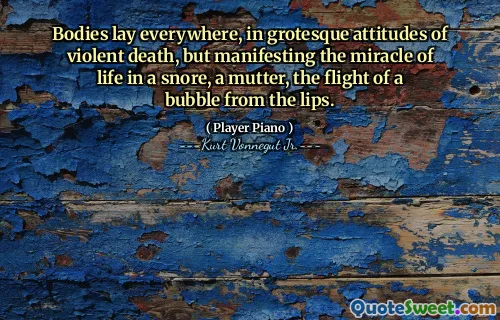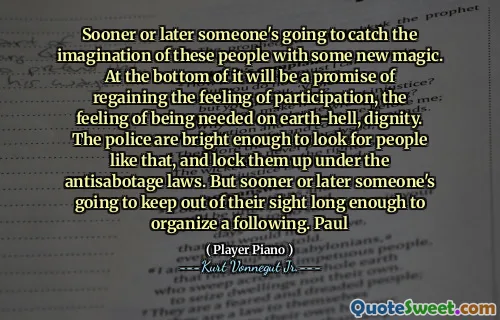
be true to yourself, and you can't be false to anybody else, and
Kurt Vonnegut Jr.'s novel "Player Piano" explores themes of individuality and societal expectations in a future where machines dominate human labor. The narrative highlights the struggle of characters who grapple with a mechanized society that values efficiency over humanity, leading to a loss of personal identity. Through their experiences, Vonnegut critiques the consequences of technology on the human spirit and advocates for the importance of self-identity in a conformist world.
The quote, "be true to yourself, and you can't be false to anybody else," emphasizes the value of authenticity. It suggests that when individuals embrace their true selves, they cultivate genuine relationships with others. This idea resonates deeply within the context of "Player Piano," where the characters' journeys reflect the conflict between societal pressures and personal truth. Ultimately, Vonnegut encourages readers to prioritize self-awareness and integrity in an ever-evolving technological landscape.











